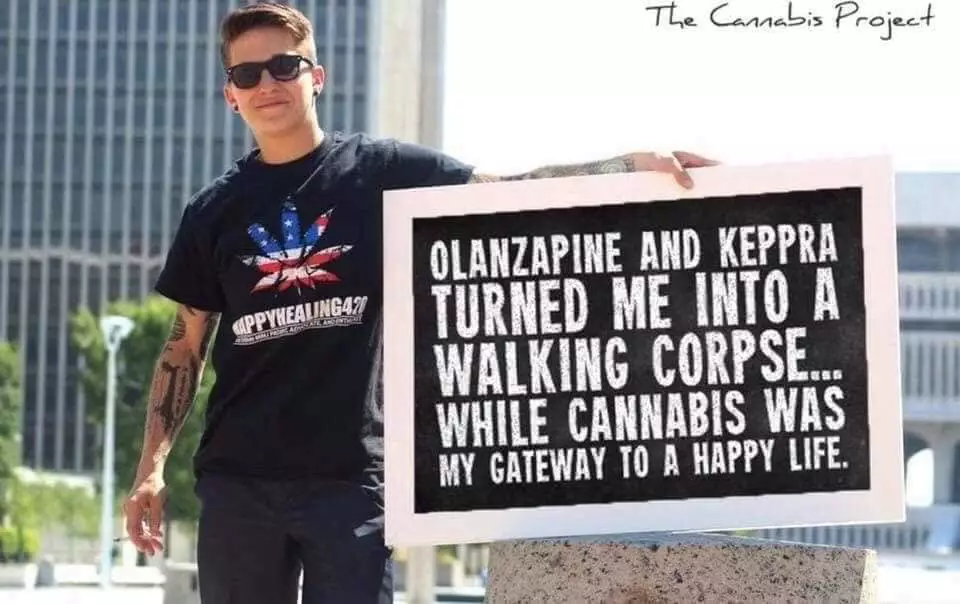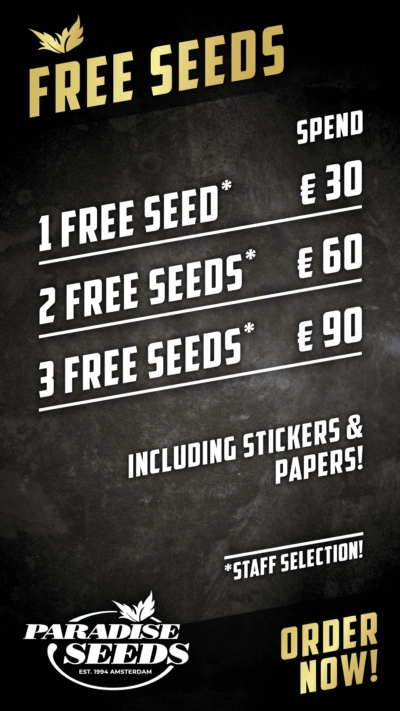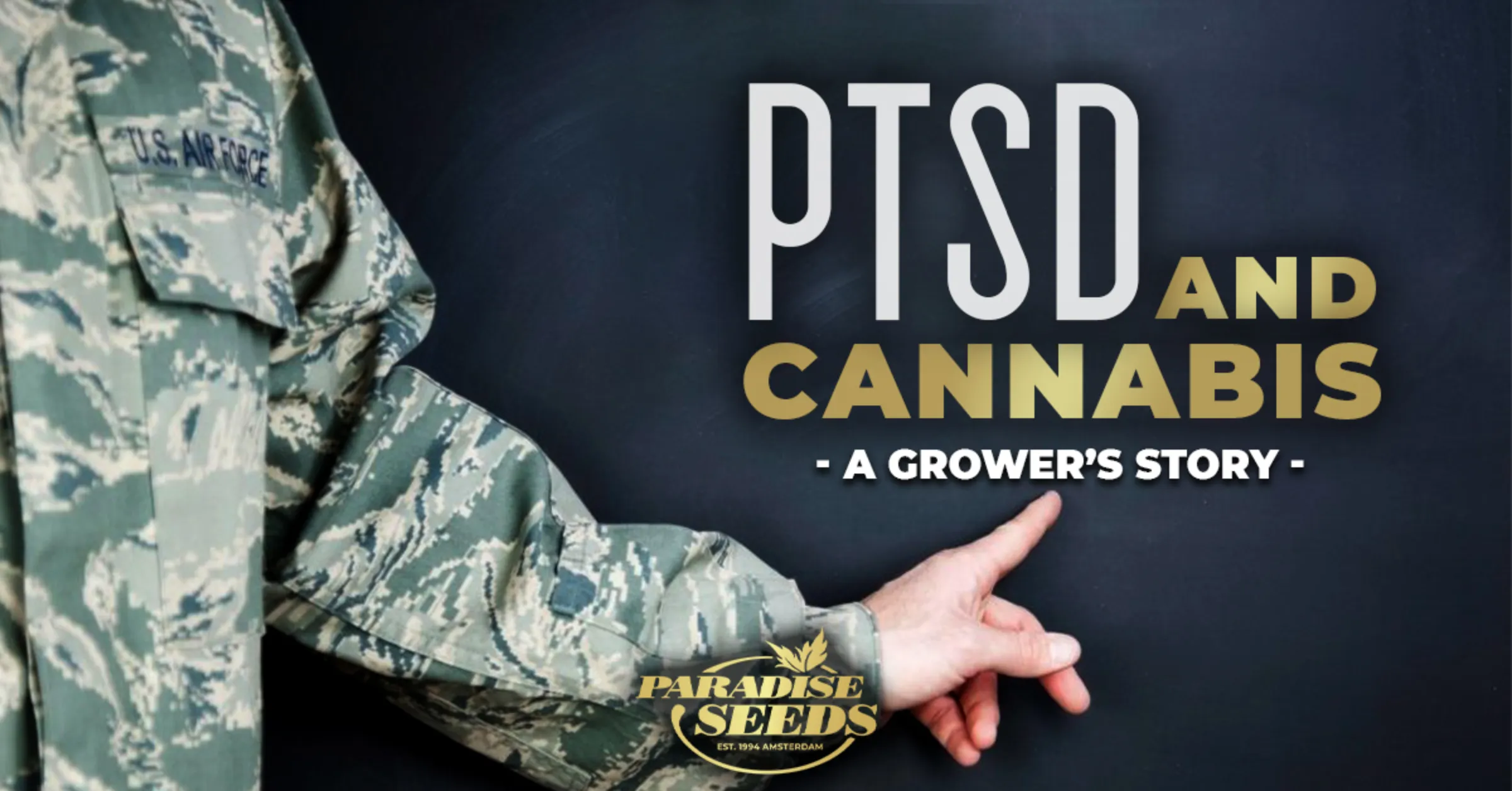Paradise Seeds shares the experience of a US combat veteran who swapped pills for plants in a grower’s story about cannabis and PTSD. In recent years there has been a significant increase in interest in the potential of cannabis as a treatment for PTSD (Post Traumatic Stress Disorder).
PTSD, weed and a medical cannabis user’s story
This month Paradise Seeds is in conversation with our new ambassagrower, Sarah Stenuf, a US combat veteran who served in Iraq and Afghanistan. She runs a not-for profit organization, Veterans Ananda which provides short-duration, high-impact retreats and long-term post traumatic growth programs for armed service members, veterans, first responders, and their families.
She is also the owner of Ananada Farms, a hemp farm in upstate New York, USA, which provides a practical focus for those coming through the Veteran Ananada program. The two combine in a holistic approach which has social welfare and hemp cannabis farming at its heart.

What is PTSD?
PTSD has been prevalent amongst combat troops throughout history but, incredibly, it was only ‘officially’ diagnosed as recently as 1980. While most people associate the condition with battle veterans, greater understanding has brought an acceptance that anyone who has undergone trauma can be affected by PTSD.
Symptoms are varied but commonly include severe anxiety, depression, nightmares and flashbacks. Conventional medicine prescribes a cocktail of pharmaceutical solutions for the treatment of PTSD, with drugs such paroxetine and sertraline, but these often come with side effects and for many of those with the condition simply don’t work.
Sarah’s Story: How she discovered cannabis as PTSD treatment
Sarah’s enthusiasm and energy is very much at odds with the person she was after she left the army having been diagnosed with PTSD, as well as suffering from frequent epileptic seizures. “When I got out I was on a plethora of medication (13 different types at one point) and many of the drugs were making my social and psychological life worse, not better, but I trusted the doctors.
It was a dark time. I felt very alone, with no place in the world and no mission.
It got so low that living seemed scarier than dying. I had become so afraid of leaving the house that I developed a vitamin D deficiency. It was that bad.”
The path to change began when a friend dropped by with a bag of cannabis. Sarah had no real previous experience with weed, and to begin with treated it as just another substance to remove her from reality, but unlike drugs and alcohol, cannabis had a positive effect. “The more I smoked, the better I felt about myself and the more I began to realize that perhaps I didn’t need all the drugs I had been prescribed and I started to cut them out of my life.
I became curious about cannabis and wanted to learn everything about the plant in an effort to understand more; I learnt about endocannabinoid receptors, terpenes and flavonoids and the effect they have on conditions – especially seizures. At the same time, while I knew cannabis ‘helped’ I needed to find a pattern or a routine, one that worked best for me and my body – things like how much to dose, when to dose, how to dose etc.”
She found her level and now uses medical cannabis more in a preventative way – such as dosing in the morning to settle the day or to manage anxiety before a stressful situation (such as an important meeting or demanding social situation).
She no longer takes pharmaceutical drugs, but combines cannabis with traditional treatments such as talk therapy and yoga. “Cannabis has also made me seizure free – people don’t realize how out of control you feel from your own body.”
What are the best cannabis strains for PTSD?
Her preference is for indica strains. “I like heavy indicas. What will knock most people out tends to keep me average all day,” she adds humorously. Strains rich in THCV are particularly helpful for her seizures and the control of twitching and tremors, however she finds CBG too racy, stimulating her anxiety, and for this reason also avoids sativas.
What is the future of cannabis and PTSD treatment?
So how does she view the future of cannabis and PTSD? “I see a lot more research building on the already significant involvement of veterans, doctors and active military interest.
There are lots of veterans associations working to make it a front line treatment and around the world there have been more veterans coming out to speak about their experiences, which are obviously honest conversations which come from a place of trust and so are being listened to.
As a result of the focus on the military aspect of PTSD, the conversation is also opening up on a civilian level too, which can only be a positive thing – for those with the condition and also for funding further research on the subject.”
While cannabis may not be the cure-all, Sarah nevertheless credits the plant with turning her life around and providing the inspiration (along with a supportive family) to change her life, and in the process, through her work with veterans, to change the lives of others.
Paradise Seeds supports the rights of patients to self-medicate using the cannabis plant. The Paradise Seeds Medical User Program offers 50% discount on all seeds for medical users, with appropriate proof.


